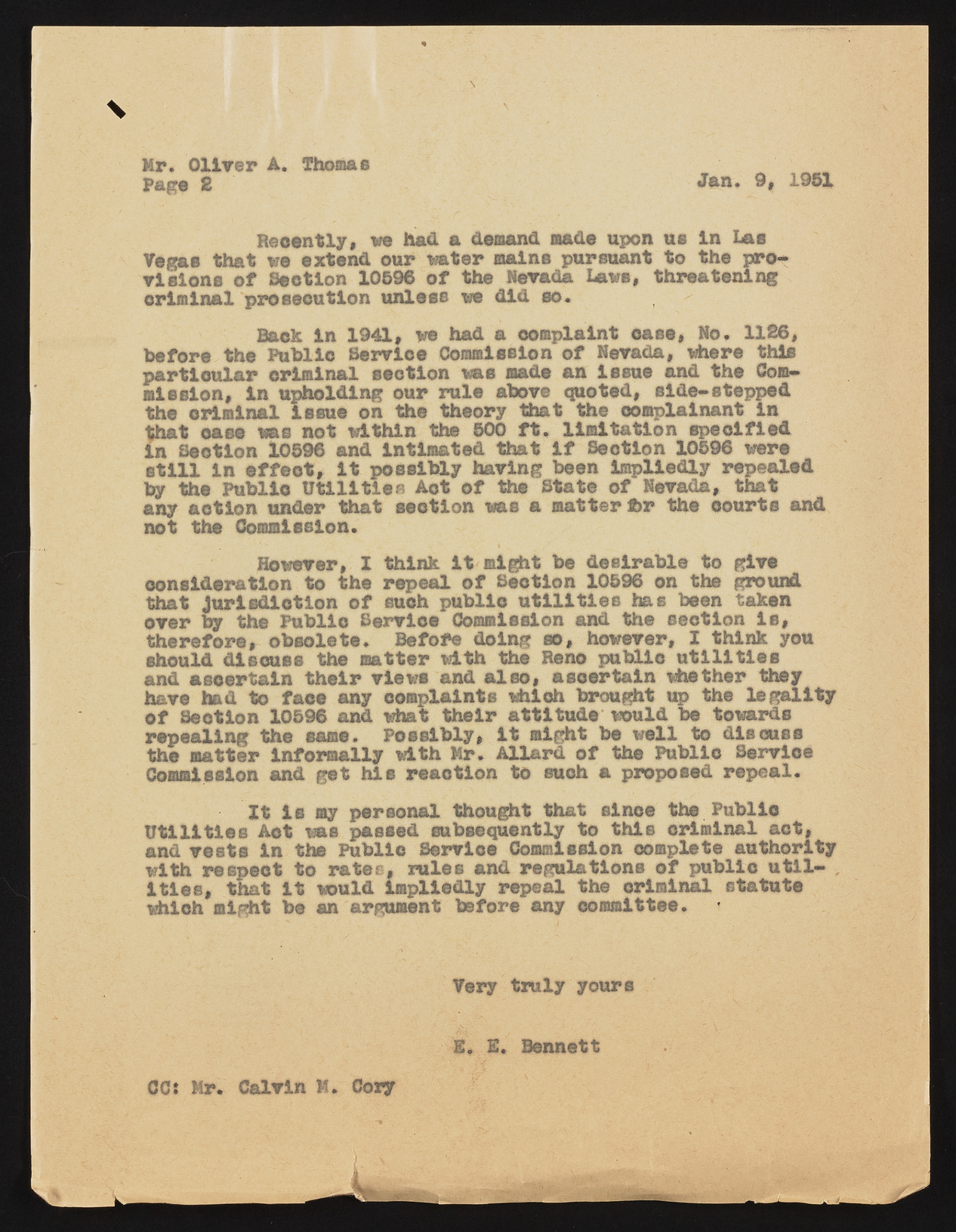Copyright & Fair-use Agreement
UNLV Special Collections provides copies of materials to facilitate private study, scholarship, or research. Material not in the public domain may be used according to fair use of copyrighted materials as defined by copyright law. Please cite us.
Please note that UNLV may not own the copyright to these materials and cannot provide permission to publish or distribute materials when UNLV is not the copyright holder. The user is solely responsible for determining the copyright status of materials and obtaining permission to use material from the copyright holder and for determining whether any permissions relating to any other rights are necessary for the intended use, and for obtaining all required permissions beyond that allowed by fair use.
Read more about our reproduction and use policy.
I agree.Information
Digital ID
Permalink
Details
More Info
Rights
Digital Provenance
Publisher
Transcription
Mr. Oliver A. Thomas Page 2 Jan. 9, 1951 Recently, ve had a demand made upon us In Lae Vegas that ve extend our water mains pursuant to the provisions of Section 10696 of the Nevada Lavs, threatening criminal proeeeution unless ve did so. Bach in 1941, ve had a oomplaint case, No. 1126, before the Public Service Commission of Nevada, where this particular criminal section was made an issue and the Commission, in upholding our rule above quoted, side-stepped the criminal issue on the theory that the complainant in that case was not within the 500 ft. limitation specified in section 10596 and intimated that if Section 10596 were still in effect, it possibly having been impliedly repealed by the Public Utilities Act of the state of Nevada, that any action under that seotlon was a matter Jbr the courts and not the Commission. However, Z think it might be desirable to give consideration to the repeal of Section 10596 on the ground that jurisdiction of such public utilities has been taken over by the Public Service Commission and the seotlon Is, therefore, obsolete. Before doing so, however, I think you should discuss the matter with the Reno public utilities and ascertain their views and also, ascertain whether they have had to face any oomplalnts which brought up the legality of Seotlon 10596 and what their attitude would be towards repealing the same. Possibly, it might be veil to discuss the matter informally with Mr. Allard of the Public Service Commission and get his reaction to suoh a proposed repeal. It is my personal thought that sines the Public Utilities Act was passed subsequently to this criminal act, and vests in the Public Service Commission complete authority with respect to rates, rules and regulations of public utilities, that it would impliedly repeal the criminal statute which might be an argument before any committee. Very truly yours g. E. Bennett CC: Mr. Calvin M. Cory

